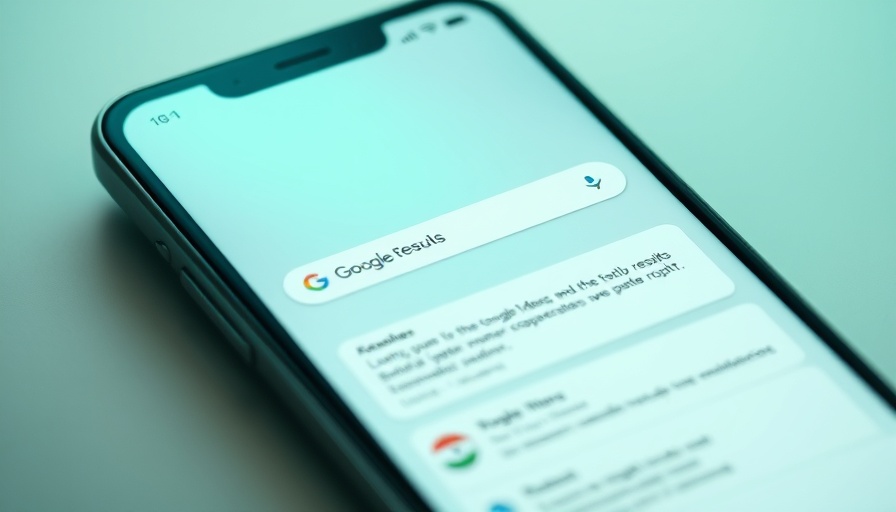
Google's AI Search: A Double-Edged Sword
As the digital world continues to evolve, Google’s integration of AI into its search mechanisms is simultaneously impressive and alarming. The AI technology that is designed to enhance our search experiences can sometimes lead us down a dark path, particularly when it comes to reliable information. With AI-generated results quickly becoming the norm, the question arises: can we trust what we see?
Beware of the AI Algorithm's Recommendations
Recently, reports surfaced about users unknowingly calling scammers through search results generated by Google's AI. The case of Alex Rivlin, as reported by Digital Trends, serves as a cautionary tale. Rivlin's innocent inquiry into Royal Caribbean’s customer service number led him to a fraudulent hotline that seemed legitimate. Once he provided his credit card information, he became the target of scammers who immediately made unauthorized charges on his account.
How Scammers Adapt to Technology
Scammers are adept at exploiting technology, often hacking into search algorithms to appear credible. They create multiple fake listings or phone numbers designed to mislead unsuspecting users. Google's AI can sometimes mistakenly correlate these false listings with legitimate companies, making it seem like the scammer is a trusted representative. The world of online scams is continually evolving, and so must our strategies for navigating it.
Experts Weigh In: AI Limitations and User Responsibility
Experts emphasize that while AI algorithms like Google's are powerful tools, they are not infallible. These systems rely on vast amounts of data and patterns but can still be manipulated. As consumers, we must maintain a level of skepticism when approaching AI-generated information. It’s crucial to double-check phone numbers, especially for significant transactions, using official company websites or dedicated customer service channels.
Steps to Protect Yourself While Searching
Being tech-savvy is no longer just about understanding how to use a device or an application; it now also includes how to protect oneself from potential scams.
- Verify Sources: Always cross-reference phone numbers or information provided by AI with official websites or trusted sources.
- Use Secure Payment Methods: When making transactions online, utilize credit cards that offer fraud protection. This can make a significant difference if something goes awry.
- Regularly Monitor Financial Statements: Keep an eye on your transactions and report anything suspicious to your bank immediately.
- Educate Yourself on Scams: Familiarize yourself with common scamming tactics to recognize red flags when seeking information online.
Future of AI in Search: A Peek Ahead
The future of AI in search is likely to bring in even more sophisticated algorithms that could help weed out scams and improve the accuracy of information. Google and similar tech companies are under pressure to enhance their AI's reliability, but this won't happen overnight. As digital nomads and productivity seekers, staying informed about advancements and implications of AI technology will be crucial. We must advocate for safer AI systems while taking proactive measures to protect ourselves.
Final Thoughts: Striking a Balance
In a world increasingly reliant on AI, the need for vigilance cannot be overemphasized. While AI tools can make our search experiences more efficient, they can also open doors to dangers we may not be aware of—like encountering savvy scammers. Therefore, it’s essential to blend technological tools with personal responsibility to navigate our digital lives safely.
Take a moment to reassess how you approach online information. Consider employing both AI tools and your due diligence to safeguard your digital transactions and communications. Stay informed, stay cautious, and stay productive!
 Add Row
Add Row  Add
Add 




Write A Comment